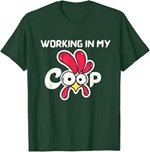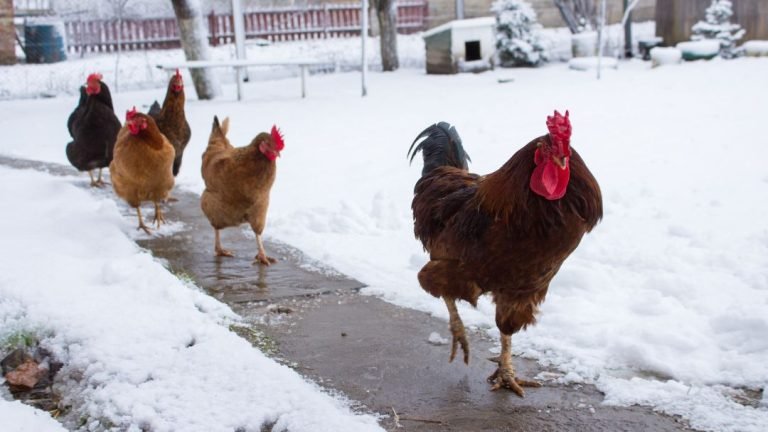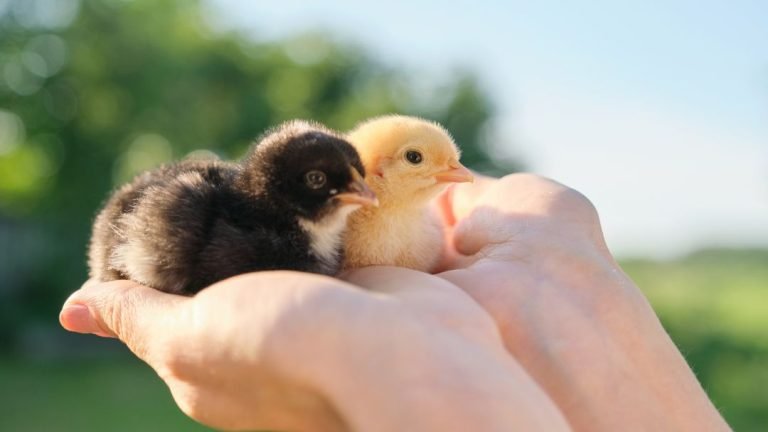Raising Cornish Chicken (Indian Game) requires careful attention and proper care. We will provide tips and guidance on how to raise and care for these chickens, ensuring their wellbeing and growth.
Cornish Chicken, also known as Indian Game, is a popular breed among poultry enthusiasts. Taking good care of these chickens involves providing them with a balanced diet, a suitable living environment, and regular health checkups. By following these tips and implementing proper care practices, you can raise healthy and thriving Cornish Chickens.
So, let’s dive into the details of raising and caring for Cornish Chicken (Indian Game).
Why Cornish Chickens Are Ideal For Raising
Raising chickens can be a rewarding and fulfilling experience. However, not all chicken breeds are created equal when it comes to ease of care and adaptability. When it comes to Cornish chickens, they stand out as an ideal choice for poultry enthusiasts. Let’s explore why these chickens are perfect for raising, their adaptability and resilience to different climates, and their unique characteristics that make them easy to raise.
Cornish Chicken’s Adaptability And Resilience To Different Climates
Cornish chickens are known for their remarkable adaptability and resilience to various weather conditions. Whether you live in a hot, humid climate or a cold and harsh environment, these chickens can thrive and produce excellent results. Their ability to withstand extreme temperatures makes them an attractive option for poultry enthusiasts in regions with unpredictable weather patterns.
What sets Cornish chickens apart is their ability to regulate their body temperature efficiently. Their large bodies and dense feathering provide insulation against cold temperatures, while their heat-tolerant nature allows them to stay comfortable in hot climates. This adaptability ensures that you can raise Cornish chickens without worrying too much about providing elaborate temperature-control measures.
The Unique Characteristics Of Cornish Chickens That Make Them Easy To Raise
In addition to their adaptability, Cornish chickens possess unique characteristics that contribute to their ease of care. These chickens have a docile and calm temperament, making them easy to handle and work with. This trait is particularly beneficial if you are a beginner or have young children who would like to get involved in poultry farming.
Moreover, Cornish chickens are known for their fast growth rate and efficient feed conversion. They have a genetically enhanced ability to convert feed into muscle mass quickly, which means you’ll get superior results in terms of weight gain. This trait makes them popular among commercial chicken farmers as well.
Their fast growth rate also means that Cornish chickens reach the desired market weight quickly, reducing the overall time and effort required for raising them. Whether you are raising chickens for meat production or simply as pets, the ability to save time and resources is always a valuable advantage.
How Cornish Chickens Thrive In Various Environments
Cornish chickens are highly adaptable not only to different climates but also to various environments. They can thrive in both free-range and confinement systems, giving you flexibility in how you raise and house them.
Whether you have a spacious backyard or limited space for raising chickens, Cornish chickens can adapt remarkably well. They are known for their contentment in confinement and do not require large roaming areas. This makes them suitable for urban or suburban settings where space may be limited.
Additionally, Cornish chickens have a strong resistance to common poultry diseases, making them hardy and less prone to illnesses. This attribute reduces the need for frequent medical intervention and helps maintain a healthy flock.
In conclusion, Cornish chickens are an excellent choice for raising due to their adaptability and resilience to different climates, unique characteristics that make them easy to raise, and their ability to thrive in various environments. Whether you are a beginner or an experienced poultry farmer, these chickens can provide a rewarding and successful raising experience.
Choosing The Right Housing For Cornish Chickens
Raising Cornish chickens, also known as Indian Game, requires suitable housing that provides them with the necessary space, security, ventilation, and lighting. The right coop will ensure that your chickens stay healthy, safe from predators, and have enough room to move and exercise. In this article, we will explore the key factors to consider when choosing housing for your Cornish chickens.
Providing Adequate Space For Cornish Chickens To Move And Exercise
To ensure the well-being of your Cornish chickens, it is crucial to provide them with enough space to move around freely and exercise. When selecting a coop for your birds, consider the following:
- Sufficient coop size: Evaluate the number of chickens you intend to raise and provide at least 4 square feet of floor space per bird. This will prevent overcrowding, reduce stress, and minimize the risk of injuries.
- Outdoor access: If possible, allow your Cornish chickens to spend time outside the coop. Design a secure outdoor run that offers ample space for them to roam and enjoy the sunlight. This will promote natural behaviors and overall health.
- Vertical space: Cornish chickens are heavier and bulkier compared to other breeds. Consider building taller coops with higher ceilings to accommodate their size. This will prevent any discomfort or restriction of movement.
Constructing A Secure And Predator-proof Coop For Cornish Chickens
Creating a secure coop is essential to protect your Cornish chickens from potential predators. Implement the following measures to ensure their safety:
- Strong fencing: Use sturdy wire mesh to enclose the coop and outdoor run. This will keep out predators such as raccoons, foxes, and rats, which could harm your birds.
- Fortified doors: Install heavy-duty doors with secure locks that predators cannot easily manipulate. Reinforce the hinges and latches to prevent break-ins.
- Buried wire: Bury wire mesh around the perimeter of the coop to deter burrowing predators like snakes and weasels.
Ensuring Proper Ventilation And Lighting In The Coop
A well-ventilated and properly lit coop is crucial for the health and well-being of your Cornish chickens. Consider the following aspects:
- Air circulation: Install windows or vents near the ceiling to allow for proper airflow within the coop. This will prevent the buildup of stagnant air and reduce the risk of respiratory illnesses.
- Natural lighting: Design the coop with windows that allow sufficient natural light to enter. Sunlight helps regulate the chickens’ sleep patterns, aids vitamin D synthesis, and promotes overall health.
- Artificial lighting: If natural light is insufficient, supplement it with artificial lighting. Use timers to provide the chickens with a consistent day-night cycle, and ensure the lighting is not excessively bright or dim.
By choosing the right housing for your Cornish chickens, you provide them with a comfortable and safe environment to thrive in. Remember to prioritize space, security, ventilation, and lighting to promote their overall well-being. When constructing or modifying your coop, keep these factors in mind for the best possible care of your Cornish chickens.
Nutritional Needs Of Cornish Chickens
Understanding The Dietary Requirements Of Cornish Chickens At Different Stages Of Growth
When it comes to raising Cornish chickens, understanding their dietary needs is crucial for their growth, health, and overall well-being. These Indian Game birds have specific nutritional requirements based on different stages of their growth. By providing them with a balanced diet rich in essential nutrients, you can ensure optimal health and weight gain, resulting in robust, thriving chickens.
Feeding Cornish Chickens A Balanced Diet For Optimal Health And Weight Gain
In order to support the growth and development of Cornish chickens, it’s important to provide them with a well-balanced diet that meets their nutritional needs. A balanced diet helps ensure proper muscle development, strong bones, and efficient energy utilization. Here are some key components to consider when creating a feeding plan for Cornish chickens:
- Protein: Cornish chickens require a high-protein diet to support their rapid growth. A protein-rich feed with a minimum of 20-24% protein content is recommended for chicks. As they grow older, the protein content can be gradually reduced to around 16-18%.
- Carbohydrates: While protein is essential, carbohydrates are a vital energy source for Cornish chickens. Including grains, such as corn and wheat, in their diet supplies the necessary energy to support their active lifestyles.
- Fats and oils: Adding fats and oils to the diet can enhance the flavor and texture of their feed. It also provides essential fatty acids necessary for healthy feather growth and overall well-being.
- Vitamins and minerals: Essential vitamins and minerals play a crucial role in Cornish chickens’ overall health. Including a vitamin supplement or a high-quality poultry feed that contains a balanced blend of vitamins and minerals is recommended to meet their specific requirements.
Supplementing Cornish Chickens’ Diet With Necessary Vitamins And Minerals
In addition to a balanced diet, supplementing Cornish chickens’ feed with necessary vitamins and minerals is important to ensure they receive all the essential nutrients they need. Some important vitamins and minerals for these Indian Game birds include:
| Vitamin | Function |
|---|---|
| Vitamin A | Supports healthy vision and immune system function. |
| Vitamin D | Aids in calcium absorption and promotes strong bones. |
| Vitamin E | Acts as an antioxidant, protecting cells from damage. |
| Calcium | Essential for skeletal development and eggshell quality. |
| Phosphorus | Plays a role in energy metabolism and bone formation. |
Ensure that the vitamin and mineral supplement you choose is specifically formulated for poultry and meets the recommended dosage guidelines. This will help ensure your Cornish chickens receive the necessary nutrients for optimal growth, health, and vitality.
Health Care And Disease Prevention For Cornish Chickens
When raising Cornish chickens, it is essential to prioritize their health care and disease prevention. These chickens, specifically the Indian Game variety, require specific attention and care to ensure their well-being. This section will discuss recognizing common health issues and diseases that affect Cornish chickens, implementing preventive measures to keep them healthy, and seeking veterinary assistance when necessary and administering first aid.
Recognizing Common Health Issues And Diseases That Affect Cornish Chickens
Being able to recognize common health issues and diseases that may affect Cornish chickens is crucial for early intervention. By understanding the signs and symptoms, you can take immediate action to prevent further complications. Here are some of the common health issues and diseases that you should be aware of:
| Health Issues | Symptoms |
|---|---|
| Bacterial or viral infections | Diarrhea, reduced appetite, lethargy |
| Respiratory problems | Coughing, sneezing, wheezing |
| Parasitic infestations | Weight loss, pale combs, feather loss |
| Poor growth and development | Stunted size, failure to thrive |
Implementing Preventive Measures To Keep Cornish Chickens Healthy
Prevention is key when it comes to keeping Cornish chickens healthy. By implementing the following preventive measures, you can ensure their well-being:
- Maintain a clean and hygienic coop environment by regularly cleaning and disinfecting the living area.
- Provide a balanced and nutritious diet that includes protein-rich feeds suitable for their growth and development.
- Ensure an adequate supply of fresh and clean water at all times.
- Practice proper biosecurity measures to prevent the introduction of diseases through equipment, visitors, or other animals.
Seeking Veterinary Assistance When Necessary And Administering First Aid
Despite your best efforts, there may be situations where professional help is needed to address health issues in your Cornish chickens. In such cases, it is crucial to seek veterinary assistance promptly. Additionally, familiarize yourself with basic first aid techniques to provide immediate care before professional help arrives. Administering first aid, when done correctly, can help alleviate pain and prevent further complications. Remember to consult a veterinarian before attempting any first aid procedures.
Tips For Breeding And Flock Management Of Cornish Chickens
Breeding and managing your Cornish chickens is crucial for improving their genetic traits and maintaining a sustainable flock size. Here are some key tips to help you along the way:
Selecting The Right Breeding Stock For Improved Genetic Traits
The first step in breeding Cornish chickens is selecting the right breeding stock. By choosing birds with desirable traits, you can improve the overall quality of your flock. Here’s what you need to consider:
- Look for Cornish chickens that exhibit strong growth rates, good meat quality, and high carcass yield. These traits indicate genetic potential and will help you achieve better results.
- Avoid birds with any signs of illness or deformities. Breeding from healthy stock is essential for maintaining the overall health and vigor of your flock.
- Consider the breed’s standard guidelines when selecting your breeding stock. This ensures that your birds conform to the recognized characteristics of the Cornish chicken breed.
Managing The Mating Process And Ensuring Successful Hatching
Successful mating and hatching are crucial steps in maintaining a healthy and productive flock. Here are some important considerations:
- Provide adequate space for mating. Overcrowding can lead to stress and reduced fertility.
- Allow for natural mating whenever possible. Observe the behavior of your chickens to ensure the mating process occurs naturally and without any hindrances.
- Monitor nesting boxes regularly and collect eggs promptly to prevent damage or contamination. Discard any eggs with defects or abnormalities.
- If you decide to use an incubator, ensure it is properly calibrated, and follow the manufacturer’s instructions for optimal hatch results.
Maintaining A Sustainable Flock Size And Addressing Potential Challenges
Keeping your flock at an appropriate size and addressing potential challenges is essential for long-term success. Here’s what you need to know:
- Regularly assess the size of your flock based on the available resources, such as space, feed, and time. Overcrowding can lead to various health issues, stress, and reduced productivity.
- Monitor the health of your chickens regularly. Implement preventive measures, such as vaccinations and proper biosecurity practices, to minimize the risk of diseases spreading within the flock.
- Address potential challenges promptly, such as aggression amongst chickens or egg-related problems. Seek advice from experienced breeders or poultry professionals if needed.
- Keep accurate records of your flock’s performance, including growth rates, feed conversion, and hatch rates. This will help you make informed decisions regarding breeding stock selection and future flock management plans.
Following these tips for breeding and flock management can greatly contribute to the success and sustainability of your Cornish chicken flock. By selecting the right breeding stock, managing the mating process effectively, and maintaining a sustainable flock size, you’ll be on your way to reaping the rewards of a healthy and thriving flock.
Conclusion
Cornish chickens, also known as Indian Game, make for a rewarding and fulfilling experience for poultry enthusiasts. By following the proper raising tips and providing the necessary care, you can ensure their health and well-being. From ensuring the right habitat to providing a balanced diet, these beautiful birds can thrive in your backyard.
So, don’t hesitate to embark on this journey and enjoy the joys of raising Cornish chickens!





